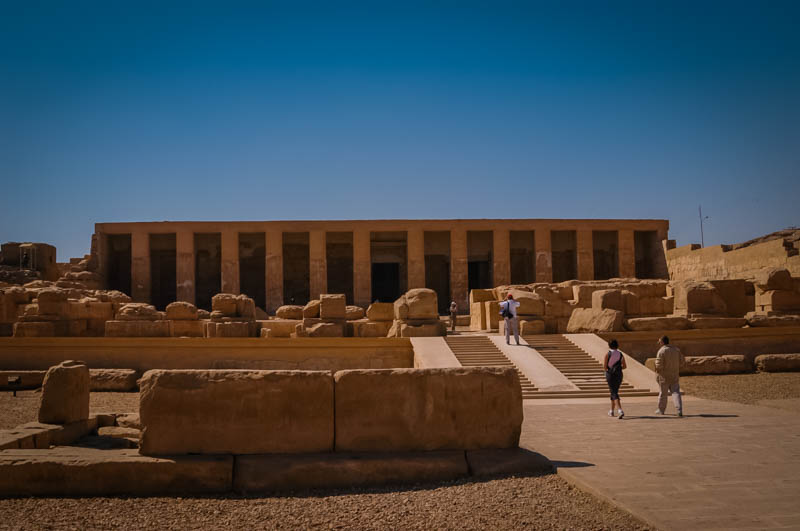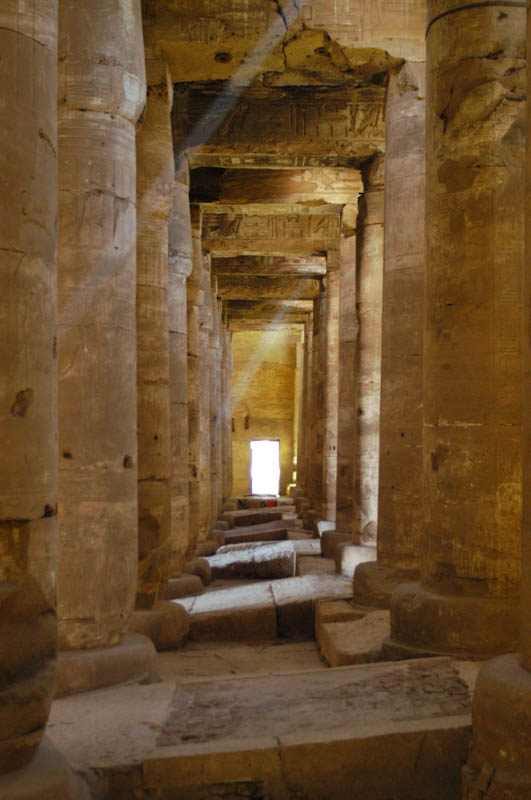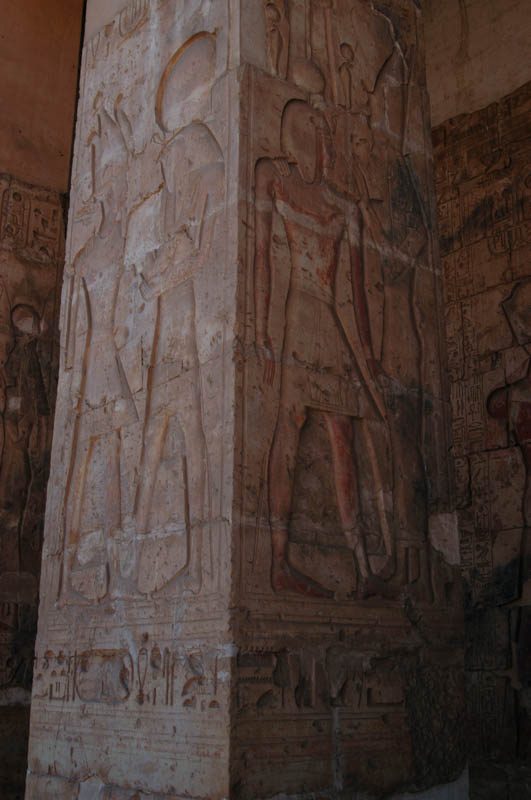The limestone temple, built by Seti I (and later usurped and added to by Ramesses II — surprised?) is in fine shape and every inch of the stone walls are covered in reliefs showing the resurrection of the god Osiris and, by extension, that of Seti I himself.

The stairs outside are a reconstruction of of the original stairs — it has 42 stairs, which has religious connotations to Osiris. The outer courtyard (which only faint ruins) was mostly built by Ramesses II, his famous son. It is mostly ruined, but the reliefs outside show the standard military motifs that cover nearly all of Ramesses II’s temples and monuments. The difference between the find bas-relief of Seti I and the harsher, deep-incised reliefs of Ramesses II are clearly visible in the temple. In some cases, Ramesses II’s work is called ‘second rate’ in my references — probably because he had all the finest craftsmen working on his own tomb and only added to this one as a gesture to his father.

There are two hypostyle halls – the outer hall decorated in Ramesses II’s rough style, and the much finer inner hypostyle hall decorated by Seti. The first two rows of columns have papyrus capitals, while the last row have no capitals at all.
